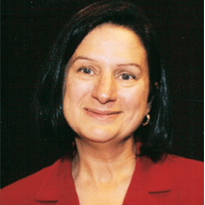GS3 Speakers
Prof Judy Regensteiner

Professor of Medicine, Department of Medicine, University of Colorado School of Medicine; Principal Investigator, NIH Building Interdisciplinary Research Careers in Women’s Health (BIRCWH); The Judith and Joseph Wagner Chair in Women’s Health Research, Director, Center for Women’s Health Research, USA.
Judy Regensteiner is Professor of Medicine at the University of Colorado, School of Medicine. Her research explores why women with diabetes have even poorer cardiovascular outcomes than men with diabetes. Her work also examines the effects of peripheral arterial disease on the ability to carry out normal daily activities. She has been Principal Investigator or Co-Investigator of large grants to assess cardiovascular health, exercise capacity and gender differences in type 2 diabetes as well as the effects of exercise training in people with type 2 diabetes and peripheral arterial disease. She is Principal Investigator of the Building Interdisciplinary Research Careers in Women’s Health (BIRCWH) grant in Colorado (BIRCWH is sponsored by the NIH Office of Research on Women’s Health and co-sponsoring NIH Institutes and Centers).
Professor Regensteiner, together with Dr. Guise will spoke about “Fostering Interdisciplinary Careers” with a focus on presenting best practices and pearls in mentoring interdisciplinary research careers that were shared by the 29 sites of the National BIRCWH program. This unique and innovative interdisciplinary initiative is led by the NIH Office of Research on Women’s Health and is now serving as a model for interdisciplinary career development. BIRCWH programs provide a mentored environment for junior faculty to develop into successful independent clinical and non-clinical scientific leaders who conduct women’s health research and/or sex and gender difference research. Professor Regensteiner and Dr. Guise spoke about the factors associated with success, which include measures ensuring sufficient protected time for regular mentoring; mentors promoting the research independence of the scholar; a team mentoring approach, including career as well as content mentors; and explicit and clear expectations outlined between the scholar and mentor.
